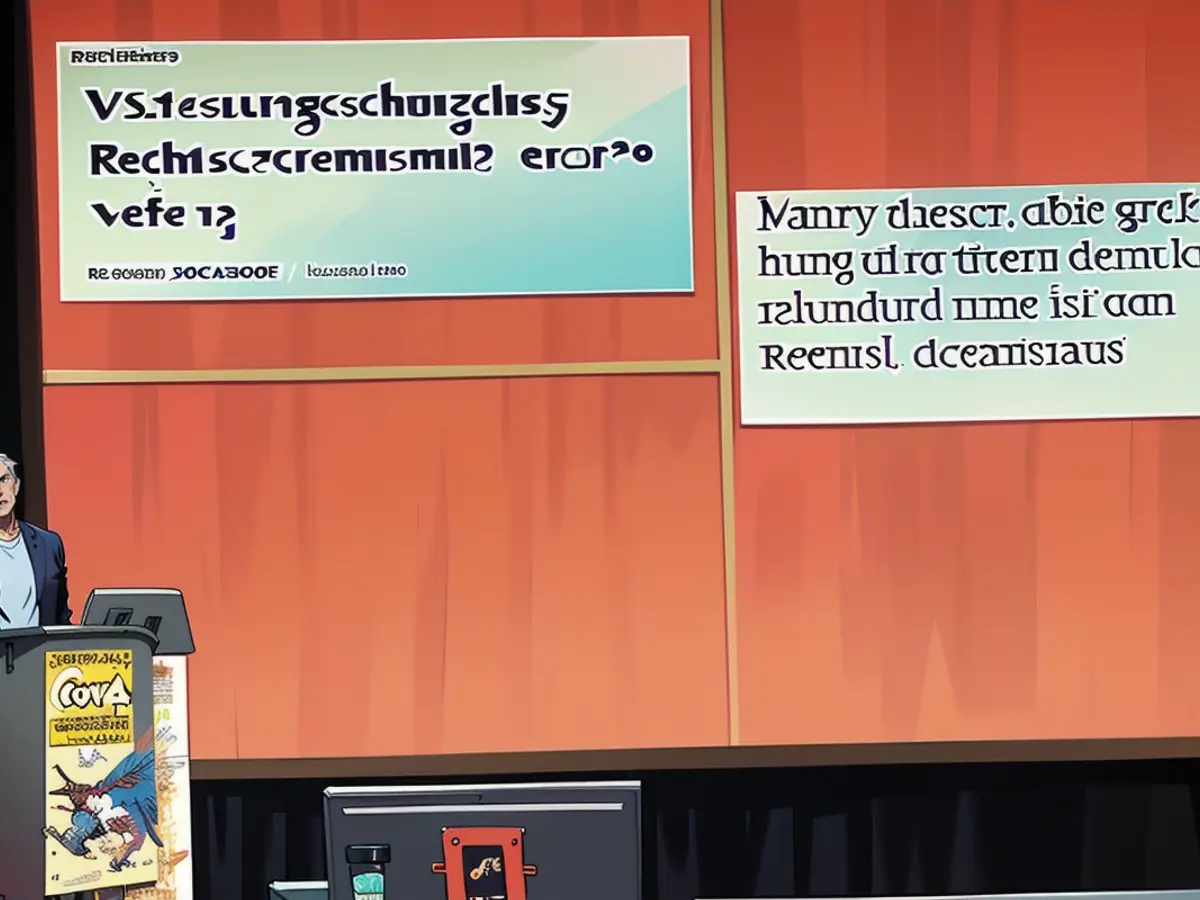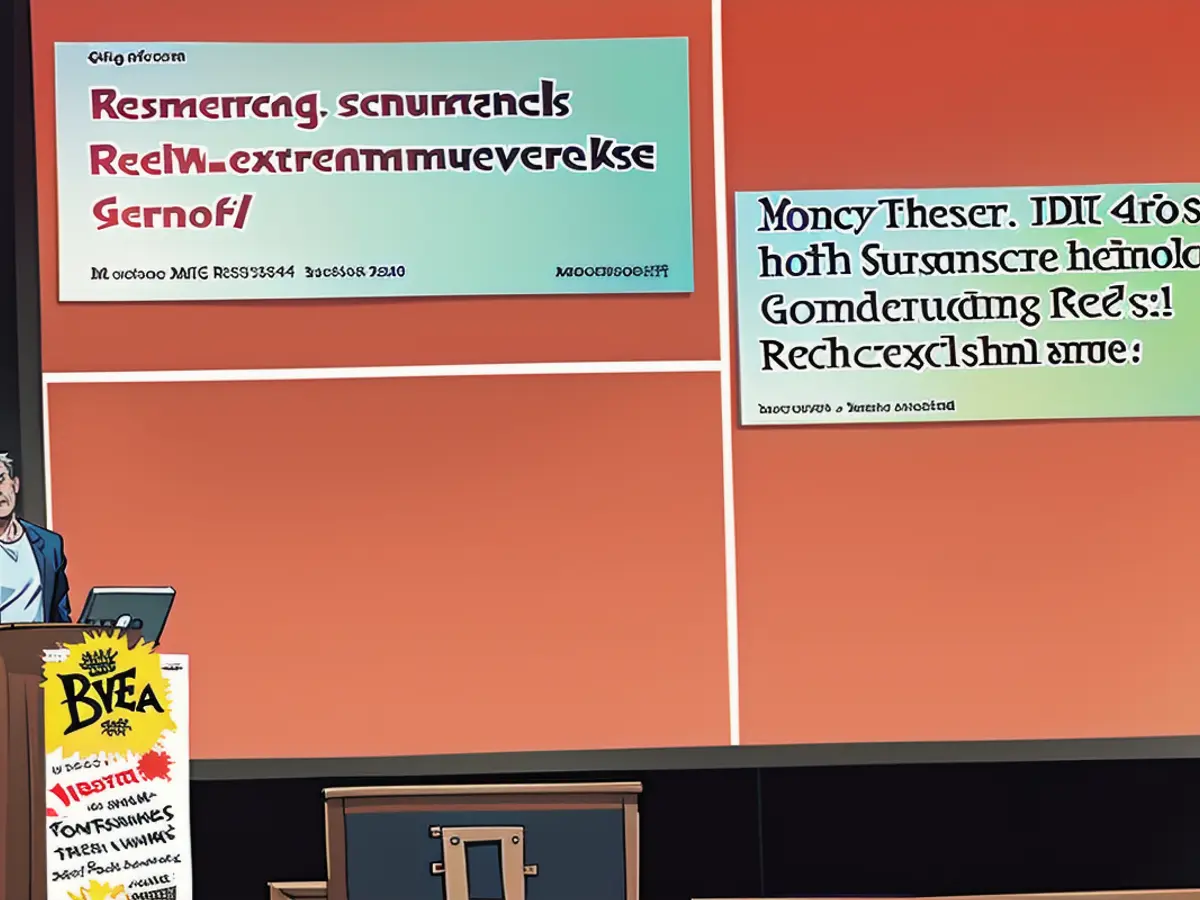Far-right zealots have transformed the web sphere
Nowadays, not only the AfD is plummeting with right-wing ideologies, but more and more individuals in Germany are vocalizing their right-wing opinions in public spaces. Right-wing extremism researcher Miro Dittrich sheds light on how the internet is linked to this emerging trend. According to Dittrich, isolation is chiefly what entices numerous individuals to right-wing circles.
ntv.de: Mr. Dittrich, do you consider the threat of right-wing extremism to be significant? Are we only witnessing the surface of this issue?
Miro Dittrich: The number of people holding right-wing beliefs in Germany is substantial. This is not limited to the survey outcomes of the AfD. It's further evidenced by the statistics on politically-motivated criminal acts. Since 2011, when the NSU came to light, there has been a 220% increase in right-wing extremist violent crimes. Despite this, the authorities' evaluation of this phenomenon as the most serious danger to democracy is accurate.
Does the internet have a connection to politically motivated crimes?
People with right-wing sentiments feel like they're the silent majority in the physical world. Online, they feel recognized once more. Although individuals advocating violence or terror attacks might not be those directly committing these offenses, they contribute to a climate where others find justification. Hence, it's crucial to investigate crimes even if they take place online.
How does a person become an extremist online?
Our perspective on radicalization is passive, suggesting only a few clicks of the wrong button can radicalize us. However, this is not the case. Radicalization involves purposeful actions. Individuals still have to choose which path they wish to take.
What prompted the shouts of anti-foreigner and racist slurs in a Sylt bar? Is this an upsurge in right-wing sentiments?
I can't say for sure if more individuals in Germany now harbor right-wing views. It is possible that they are merely more willing to express it. Few counter-narratives are available to balance out the message of hate speeches. Since the Sylt incident grew widely known, several incidents have surfaced where similar outbursts took place in recent months. Additionally, the fact that the slogan linked to a song had been around for months was previously unknown.
Why has there been a greater readiness to express right-wing sentiments?
The rise in right-wing expressions can be attributed to the fact that more of this type of material is available on the Internet. They believe more people share their perspective.
How do people end up in right-wing content?
Individuals often turn to right-wing worlds due to loneliness. Longing for a replacement family, they find solace in the digital realm. They are craving meaningful narratives. Right-wing forums supply them with answers that make sense. A simplification of complex topics entails assigning blame, a moment of realization for these individuals. Consequently, they restructure their life ideologies. Online platforms reinforce these newfound beliefs by suggesting more content tailored to them. QAnon is an apt example.
The conspiracy theory that surfaced in America a few years ago?
It's a compilation of conspiracy theories originating in the United States. Believers maintain that the world is secretly governed by a "Deep State." These people picture themselves as valiantly combating evil forces. Trump is their savior, with a mission to destroy the forces of evil. Their political adversaries, meanwhile, are imbued with the maximum wickedness.
How has Corona impacted the rise of right-wing content on the internet?
During the Coronavirus pandemic, numerous people in Germany have experienced the feeling of loneliness. Massive events, like the Corona pandemic, necessitate explanations. Some find them online, in conspiracy theory realms. A digital ecosystem of alternative realities has formed. While the pandemic event might have come to an end, these individuals remain active in their channels.

What role do communities or groups play in radicalization?
Online forums offer ideological reinforcement and a sense of unity to individuals. They feel that they're combating clandestine forces tyrannizing children. Weapons are also exchanged between members. The members of these forums glorify attacks and motivate each other to commit terrorist acts. This tendency was particularly striking in the 2019 Halle attack. The perpetrator in Halle even crafted his own weapon with templates from the internet. He perceived himself as a warrior. All his knowledge came from the digital world. Entirely radicalized online, he carried out his violent deeds.
Therefore, is the real threat truly the internet? [You're o]
Understanding right-wing extremism requires a close look at the internet. The motto applies: "You can't grasp the far-right without comprehending the internet, and you can't grasp the internet without understanding the far-right." The internet has become a potent weapon for radicals, allowing them to recruit, spread propaganda, and network. In the past, during the Nazi era, the National Socialists swiftly harnessed emerging media forms like radio and cinema for their cause. Similarly, the internet is their preferred tool now. take the AfD, for example, who've gained prominence on Facebook, YouTube, and TikTok, especially among young audiences.
What's the significance of platforms?
More tightly controlled platforms help curb extremism more effectively. However, platforms that don't impose moderation allow individuals to express themselves freely. Telegram, for instance, has become a home for a subculture known as "Terrorgram." Its members laud terrorists and inspire each other towards acts of violence.
Why does this happen?
Governments have been behind the curve in their response to digitalization. We've only recently understood that online events don't stay online; they affect attitudes in the real world. There's still much room for improvement, but progress is being made.
What can be done?
The internet is not a lawless realm. Although the same rules apply online as offline, enforcement is inconsistent. Illegal content is present, but platforms should also acknowledge that extremists use them, frequently within legal boundaries or the restrictions set by the platforms. Danger must be recognized. It's startling to see how young those committing right-wing violence are becoming, with male minors across the globe displaying this behavior.
When does radicalization begin?
Gaming culture helps identify potential radicalization, although it's not always linked to it. The internet provides an avenue for young people to socialize. It's crucial for parents to be aware of not only their children's offline associates but their online friend groups as well.
Why are young men drawn to it?
Young men feel insecure about their masculinity and strive to appear as tough as possible. Insecurities fuels their desire to align with a stereotypical, macho image.
How am I, as a user of X, affected by this?
With Elon Musk losing interest in content moderation, the platform has become a hotspot for far-right extremism. Discourse has declined, comment sections are unbearable, and Holocaust denial and calls for right-wing violence are easy to spot there. On X, I have a certain reach, and I use it. I also think it's positive when organizations leave the platform. I'm undecided about it; is this the digital space we want?


Read also:
- The internet has become a tool for right-wing extremists, similar to how National Socialists utilized emerging media forms like radio and cinema during their era.
- The rise of right-wing content on the internet can be attributed to the fact that more of this type of material is available, leading individuals to believe that others share their perspective.
- Social networks, such as Facebook and TikTok, have helped the AfD gain prominence among young audiences, contributing to the rise of right-wing sentiments.
- Right-wing extremists often find solace in digital forums, which offer ideological reinforcement and a sense of unity, and where weapons are exchanged between members.
- The rise of right-wing violence among young men can be linked to their insecurities about masculinity and the desire to align with a stereotypical, macho image.
- Donald Trump's presence and the influencers associated with him have promoted right-wing populism and the normalization of hate speech on social networks.
- The authorities need to acknowledge that extremists use platforms, frequently within legal boundaries, and recognize the danger of this digital activity, especially among young people.








